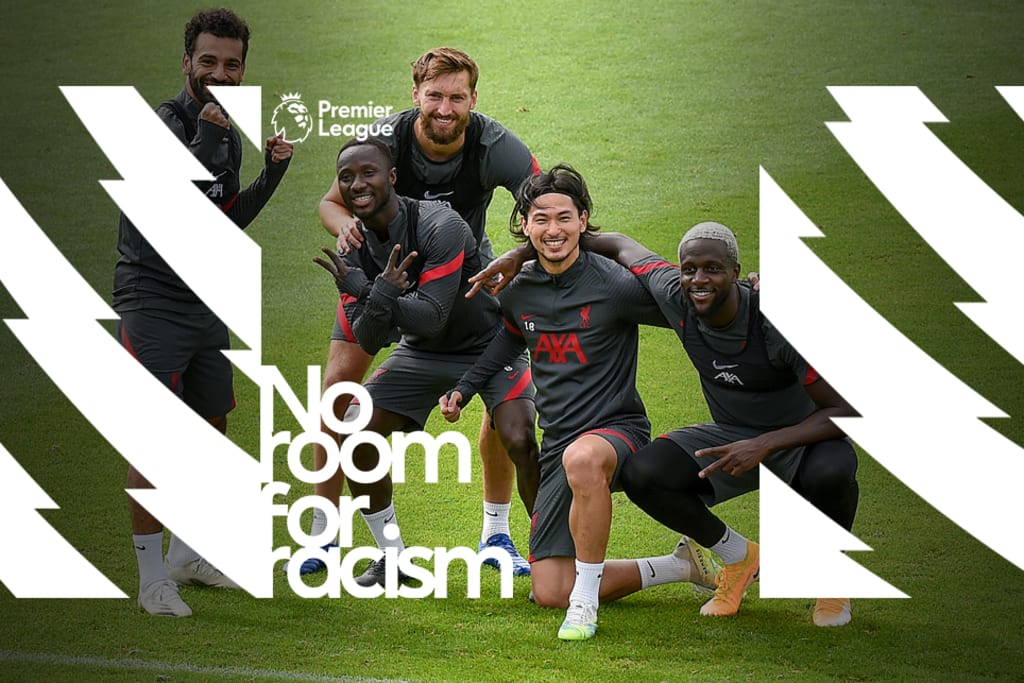Tackling the Lingering Threat of Racism in Football
A Global Challenge

Int roduction:
Football, often regarded as the "beautiful game," unites people from diverse backgrounds across the globe. It has the power to transcend borders and bring individuals together under the banner of shared passion and excitement. However, beneath the surface of this beautiful sport lies a pressing issue that continues to mar its reputation: racism. Despite significant progress, racism in football persists as a challenging and pervasive problem that demands urgent attention. In this article, we delve into the various dimensions of racism in football, highlighting its impact, ongoing efforts to combat it, and the need for collective action.
The Persistent Problem:
Racism in football manifests in various forms, including racial slurs, discriminatory chants, and targeted abuse towards players, officials, and fans. The deeply embedded prejudices displayed on and off the pitch tarnish the sport's image and create an environment that is hostile and unwelcoming for many individuals. High-profile incidents involving players such as the despicable acts directed towards England's Marcus Rashford, Jadon Sancho, and Bukayo Saka during the Euro 2020 final highlight the pressing nature of this issue.
Impact on Individuals and Communities:
The impact of racism in football extends beyond the realm of the sport itself. It affects the mental health and well-being of players, who are subjected to derogatory comments and racial slurs. Such incidents can have long-lasting effects, eroding the self-confidence and performance of those targeted. Furthermore, racism divides communities, perpetuating stereotypes, and reinforcing societal prejudices. Young aspiring players from marginalized backgrounds may be discouraged from pursuing their dreams due to the fear of encountering racial discrimination.
The Role of Football Authorities:
Football authorities play a crucial role in addressing racism within the sport. Organizations like FIFA and UEFA have taken steps to combat this issue through campaigns, education programs, and strict disciplinary measures. Initiatives like Kick It Out in the United Kingdom and Show Racism the Red Card are also actively working towards eradicating racism from football. However, while these efforts are commendable, more needs to be done to effectively tackle the problem.
Education and Awareness:
One of the key strategies in combating racism is through education and awareness. Football clubs, national associations, and governing bodies must work together to promote inclusivity and diversity within the sport. This includes implementing robust anti-racism education programs for players, coaches, and fans. By fostering understanding and empathy, these initiatives can challenge stereotypes and promote a culture of respect.
Accountability and Stronger Sanctions:
To deter acts of racism, stronger sanctions must be implemented consistently. Football authorities should impose severe penalties on individuals and clubs found guilty of racial abuse. These penalties can range from hefty fines and stadium bans to point deductions and expulsion from competitions. Stringent consequences would serve as a powerful deterrent and send a clear message that racism will not be tolerated.
Support from Players, Coaches, and Fans:
Football's stakeholders, including players, coaches, and fans, possess immense influence in shaping the culture of the sport. Prominent figures must use their platforms to condemn racism unequivocally and support those who have been victimized. Players taking a knee before matches, as seen in recent years, serve as a powerful symbol of solidarity and resistance against racism. Additionally, fans must actively challenge discriminatory behavior within their communities and report incidents to the authorities.
Conclusion:
Racism in football remains an issue that demands immediate attention and concerted efforts from all stakeholders involved. The sport's governing bodies, clubs, players, and fans must work hand in hand to create an inclusive and diverse environment. By educating, raising awareness, implementing strict sanctions, and fostering a culture of respect, football can lead the way in the fight against racism.





Comments (1)
Lovely